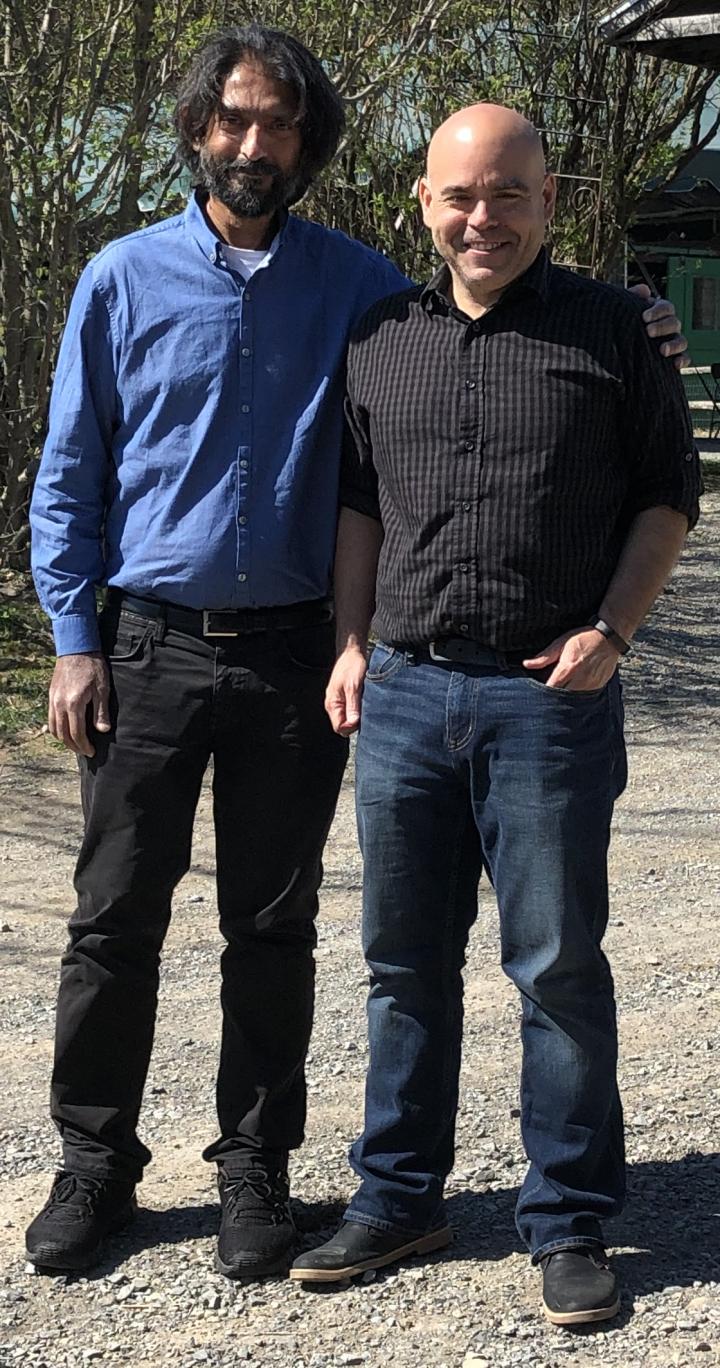
Credit: Dr. Arshad Khan
A partnership between researchers at The University of Texas at El Paso and the University at Albany (UAlbany) in New York will attempt to understand how neural circuits that encode learned responses to fear develop in mammalian brains.
A research team led by Arshad Khan, Ph.D., associate professor of biological sciences and director of the UTEP Systems Neuroscience Laboratory, is partnering with Andrew Poulos, Ph.D., assistant professor of psychology at UAlbany, who is the principal investigator of a $1.89 million grant from the National Institute of Mental Health to determine how the brain circuits that underlie fear learning develop in male and female animals. Khan is serving as a co-investigator on the grant and has been awarded a $650,000 portion to provide expertise in mapping these circuits using state-of-the-art instrumentation at UTEP.
At UAlbany, the Poulos lab will conduct behavioral experiments associated with a fearful stimulus. Khan’s laboratory will track the appearance of key biomarkers during the fear responses. These biomarkers form an “activation pattern” that can be superimposed onto an atlas of the brain to create detailed maps of the regions that harbor nerve cell populations associated with fear conditioning.
“We have a massive medical burden where many individuals suffer from anxiety and fear to the point where it is actually debilitating,” Khan said. “There’s a growing awareness that fearful events or early childhood trauma can affect brain development. We have virtually no knowledge, at the circuit level, as to how those changes take root.”
When individuals experience life-threatening events, they rapidly associate them with their immediate environment. This knowledge of “where” a previous threat occurred can promote fear responses that minimize the occurrence of future threat. This form of fear, which is known as contextual fear conditioning, can be modeled in laboratory settings to identify how the brain learns about and remembers fearful experiences. Emerging evidence suggests that this aspect of fearful experience may largely differ among the sexes and between age groups.
“In our initial experiments, we are making a correlation between fear learning and specific activation patterns in brain regions, with an eye in future experiments to use this information to determine if this activation causes fear,” Khan said.
Khan said this research will provide a foundation of knowledge that can potentially contribute to pre-clinical models of stress- and trauma-related disorders and investigations that could render clearer understanding of clinical dimensions in human patients.
Khan expressed his delight to be able to work formally with Poulos, with whom he has been friends since their days together in Los Angeles working at the University of Southern California, where Khan was training as a postdoctoral researcher and Poulos was a doctoral student.
Khan added that Poulos is one of the rising authorities in the field of learning and memory research related to fear. The opportunity to work with him is a testament to the capabilities present at UTEP.
“We are benefitting from that excellence at UAlbany,” Khan said. “In turn, we are providing neuroanatomy expertise to them. Our students have the opportunity to take part in a project that is unprecedented. It really is a wonderful marriage. It’s an honor to be a part of this project.”
###
Media Contact
Victor H. Arreola
[email protected]




